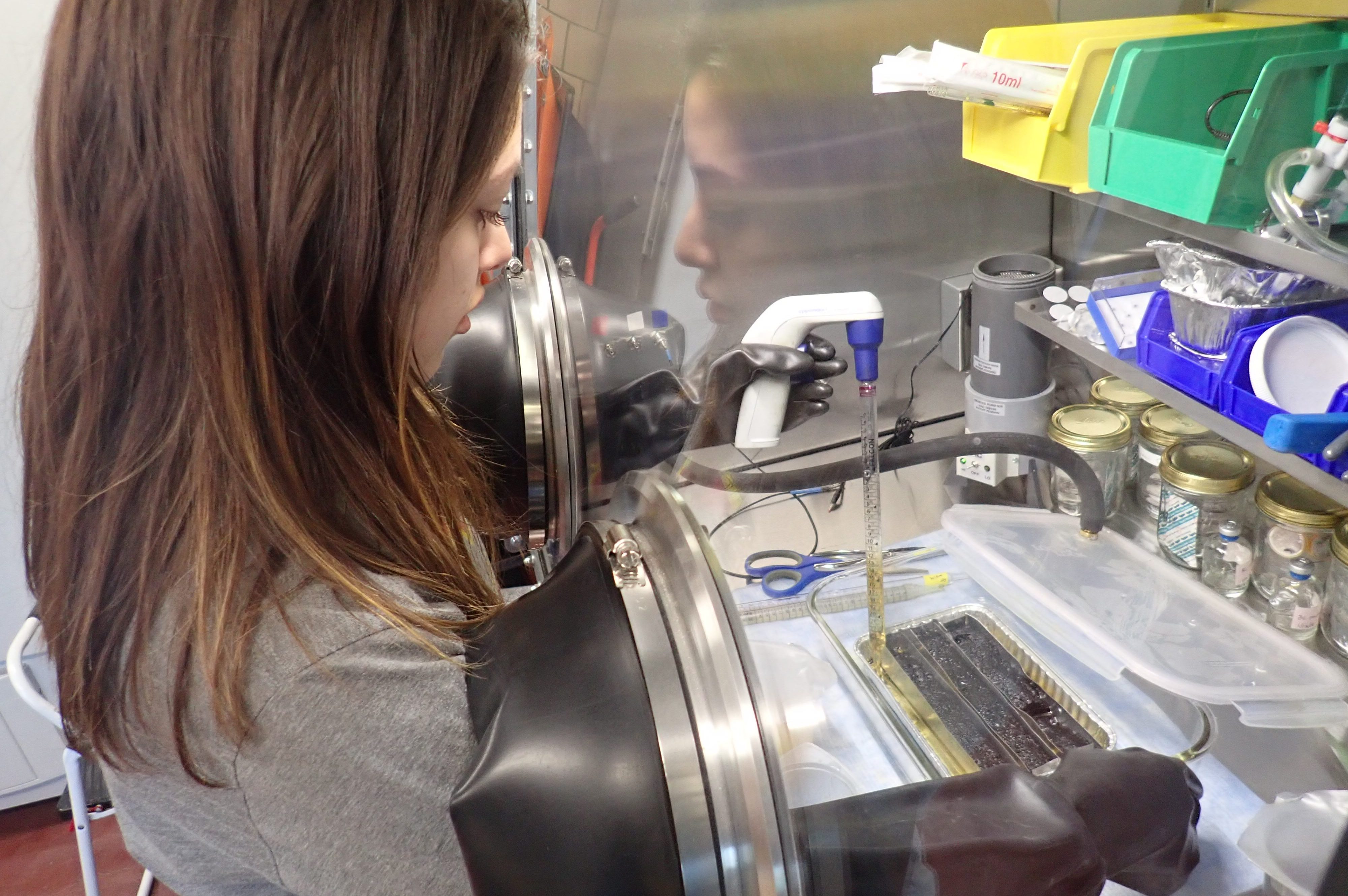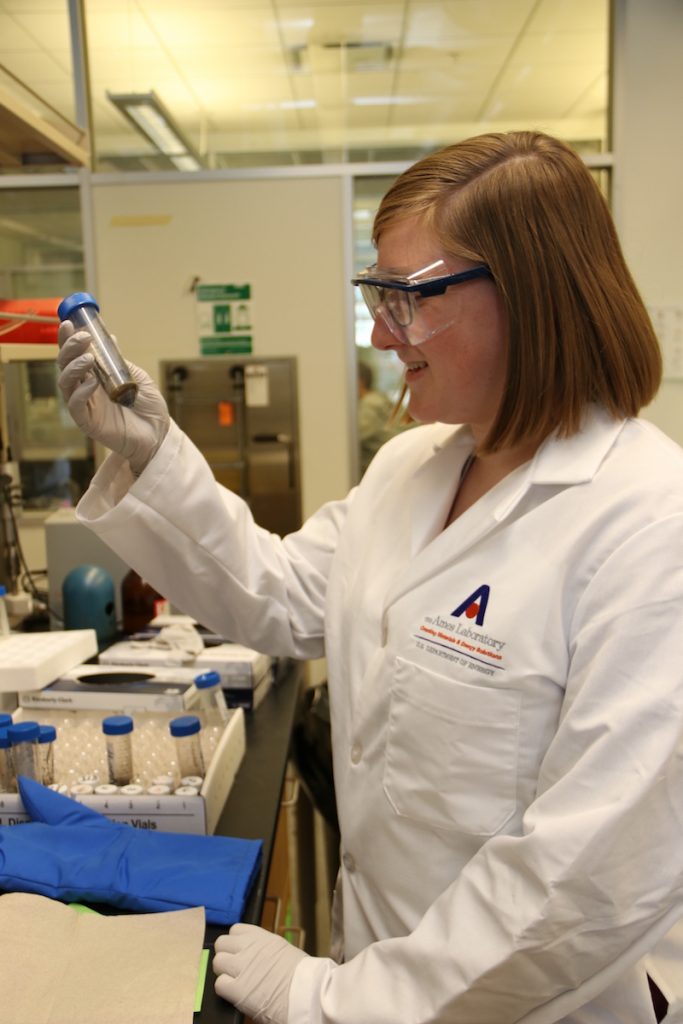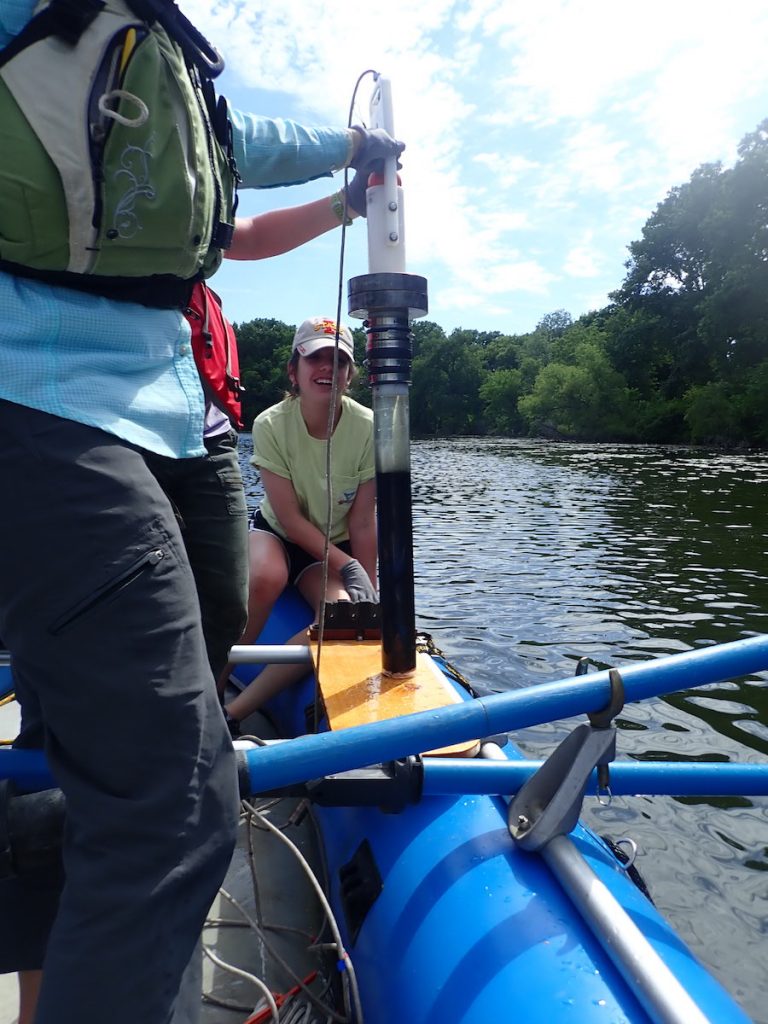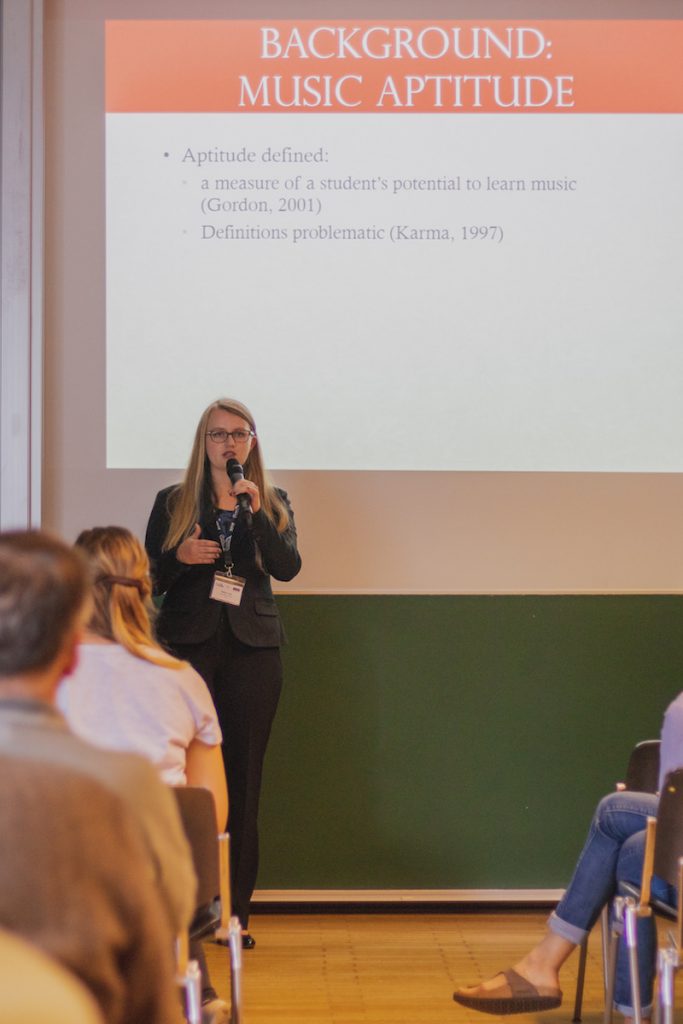
In the College of Liberal Arts and Sciences, 13 students received Dean’s High Impact Undergraduate Research Awards to support their summer research with faculty.

For Katelyn Baumler (’18 chemistry), the award made her research project possible. Baumler will graduate in the fall and the award gave her the opportunity to do research this summer rather than needing to find a summer job.
Baumler is working in the lab of Javier Vela, associate professor of chemistry, on synthesizing a semiconductor that could be used in thermoelectric devices, which convert waste heat into useable energy. After graduation, she plans to attend graduate school and someday teach.
“Classes can get really challenging but if you have the research to be like, ‘This is my end goal and someday this is what I’m going to get to do,’ it helps,” she said.

Gabrielle Ledesma (’20 geology) works with Elizabeth Swanner, assistant professor of geological and atmospheric sciences, researching how the microbial community in stratified lakes in the Midwest drive the iron and carbon cycles in an anoxic environment. The results serve as an analog for early Earth oceans, which scientists believe also had anoxic iron-rich conditions.
Ledesma plans to pursue her postdoctoral degree and a career in academic research. Being involved in a lab with graduate students gives her experience as an undergraduate of what that career path might look like.
“One of my favorite parts is I get to work with a lot of really cool machines,” she said. “To use this machine that really only professors and grad students and Ph.D. students are using—as an undergraduate that’s super cool to be able to be taught on that.”

For Baily Cook (’19 vocal music education), the award helped fund her travel to present her summer research at a conference in Austria.
Cook is working with Christina Svec, assistant professor of music and theatre, on a meta-analysis of music aptitude research to help determine what is effective in music aptitude testing, how students can determine their musical aptitude and how to help students achieve higher.
“I’ve kind of shifted my career goals a little bit after doing research because I think it’s something that I would want to continue further down the road,” Cook said, “Before I was just thinking about being a teacher, but now I’m trying to figure out how I could incorporate both.”
Summaries of all the research projects are listed below:
- Ian Adams with Monica Marsee, associate professor of psychology: The study will look at the CU traits (callous and unemotional) of individual youth shelters to determine how exposure to trauma can lead to the development of antisocial traits. The long-term goal is to identify markers that can then be used to help individuals better adjust to these experiences.
- Katelyn Baumler with Javier Vela, associate professor of chemistry: This is a materials project where semiconductors for thermoelectric applications will be synthesized.
- Bailey Cook with Christina Svec, assistant professor of music and theatre: Will conduct a meta-analysis on music aptitude. The statistical synthesis will inform future music aptitude research, disseminate informed results and conclusions and add evidence to theoretical discussions.
- Sara-Helen Davis with Abby Dubisar associate professor of English: Looking at the written and visual data regarding elective sterilization from a reproductive justice issue and if they perpetuate ideologies about gender, race, class, etc.
- Benjamin Kiel with Kristie Franz, associate professor of geological and atmospheric sciences: Predicting flooding using “ensemble prediction”- the use of multiple precipitation scenarios to represent uncertainties in weather forecasts.
- William Gallaher with Baoyu Chen, assistant professor of biochemistry, biophysics and molecular biology: Looking at the signaling between the actin cytoskeleton and the membrane, specifically the WAVE regulatory complex (central regulatory hub) and glutamate receptors (these have a fundamental role in synapses and the plasticity of the CNS).
- Gabrielle Ledesma with Elizabeth Swanner, assistant professor of geological and atmospheric sciences: Studying minerals forming from permanently stratified lakes in Minnesota (Brownie Lake) and the Upper Peninsula in Michigan (Canyon Lake). It is part of an NSF-sponsored study to look at microbial-mediated elemental cycles.
- Bryn Myers with Marna Yandeau-Nelson, assistant professor of genetics, development and cell biology: Characterize fatty acid synthesis in nine strains of Bacillus to determine which strains could be best utilized to target chain-length specific fatty acid products. She will also look at fat accumulation in mutant strains of E. coli.
- Zachary Robole with Brett VanVeller, assistant professor of chemistry: Will look boronic acids as a key modulator in controlling the oxidation of catechol (a biorenewable feedstock and a base molecule for many kinds of products).
- Kaylee Short with Kristi Costabile, assistant professor of psychology: This study will look at how previous experiences may serve as a source of self-expansion which leads to increases in self-efficacy.
- Anthony Song with Jacob Petrich, professor of chemistry: Determining the parameters for quantifying the amount of grass consumed by cows by looking at chlorophyll specific optical signature of milk.
- Chuyun Teo with Baoyu Chen, assistant professor of biochemistry, biophysics and molecular biology: Will study the protein CRMP2, which plays a role in axon formation from neurites.
- Derek Thada with Olga Chyzh, assistant professor of political science and statistics: Looking at “location choice” for subsidiaries of multinational firms using the mathematics, programming and statistics involved in game theory.